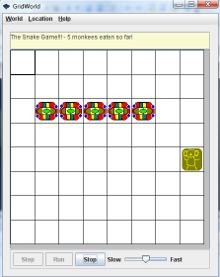Today in Austin, Texas at the TCEA state convention, Bill Dunklau organized a panel to discuss the proposed AP CS Principles course. Bill served as the panel moderator. Teresa Dahlberg, representing NSF, and I served as live panel participants. Several others participated via Skype.
Bill provided an intro and began the AP CS Principles Pilot awards. Awards were given to the colleges currently piloting courses based on the AP CS Principles framework. Various awards were presented to recognize the different approaches used to deliver these pilot courses.
Teresa provided an overview of the AP CS Principles course, an explanation of the combined efforts of NSF and the College Board, and the rationale behind the development of the course. Related information can be found at http://csprinciples.org/
Dan Garcia from UC Berkeley spoke about his CS10 : The Beauty and Joy of Computing course. He provided some examples and supporting feedback from some of his students. Scratch BYOB is the main environment used to create projects in this class. Information can be found at http://inst.eecs.berkeley.edu/~cs10/sp11/
Teresa provided a bit more information on the NSF role in the project and some slides from Owen Astrachan. Related information can be found at http://csprinciples.org/
I presented some slides from Larry Snyder and gave an overview of the CSE120 University of Washington course. LightBot and Processing are the main environments used to create projects in this course. Information can be found at http://www.cs.washington.edu/education/courses/cse120/11wi/
We finally were able to get Jody Paul up on the big screen via Skype. Jody spoke about the Living in A Computing World course he teachers at Metropolitan State College of Denver. Scratch and LightBot are the main environments used to create projects in this course. Information can be found at http://livinginacomputingworld.org/
Chris Stephenson wrapped up the panel via Skype. She provided information about the role of CSTA.
Hopefully, the panel discussion provided useful information to all that attended.
Other related Links
LightBot – http://armorgames.com/play/2205/light-bot
Scratch BYOB – http://byob.berkeley.edu/
Processing – http://processing.org/

